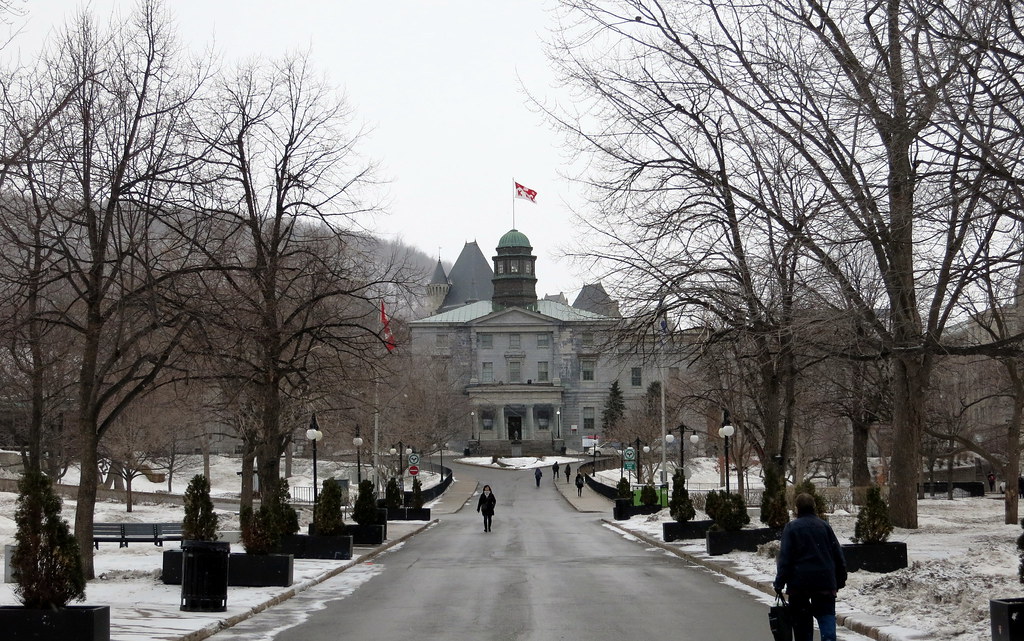McGill’s move to in-person teaching has been a divisive talking point for the past few weeks. To some, this day couldn’t come sooner, and for others, it shouldn’t have come at all. Many feel going back to in-person teaching is unsafe considering Montreal’s current COVID situation. Other students––myself included––simply can’t handle another semester online and the benefits of receiving an in-person education certainly outweigh the risks. That being said, no one should be obligated to return to campus, especially if they don’t feel safe doing so. Many students and professors are immunocompromised, or live with someone who is. Furthermore, many professors have young children who aren’t able to get vaccinated yet and they, understandably, want to limit their COVID exposure.
Despite these differing sentiments, students can agree that the McGill administration’s handling of the return to in-person teaching has been disappointing. It goes without saying that returning to in-person learning during a surge in COVID cases will inevitably cause students and faculty to catch COVID. Although McGill is aware of this fact, they have put little effort in promoting hybrid methods of learning. Many classrooms still lack functioning lecture recording equipment despite McGill having had two years to invest in better recording infrastructure to compensate.
In refusing to mandate things like lecture recordings, the McGill Administration is placing the burden of accessible education onto the teaching staff.
Although recording lectures isn’t the norm everywhere, many UK universities, like Warwick and UCL, have had lecture recording systems in place long before the pandemic began, which makes McGill’s lack of recording infrastructure that much more incomprehensible. I also struggle to understand McGill’s persistent refusal to mandate the recording of lectures for students unable to attend classes in-person. In the dozens of MRO Communications e-mails we received at the start of term, only one of them addressed recordings, and even then, it only said they (McGill) “strongly encourage instructors to record their lectures whenever possible.” In refusing to mandate things like lecture recordings, the McGill Administration is placing the burden of accessible education onto the teaching staff. Not only does this create added pressure on professors who have constantly had to adapt their teaching methods during the pandemic, but it also complicates the learning process for students who have professors that refuse to accommodate them.
In my experience, the way professors have regarded the issue of recording lectures has been extremely varied. One of my professors records and uploads all of our lectures before each in-person lecture because our classroom doesn’t have any recording equipment. This means that every hour of class time requires at least two hours of teaching, essentially doubling my professor’s workload. Meanwhile, some professors flat out refuse to record any in-person lectures, which not only affects immunocompromised students (or students living with immunocompromised people), but also incentivises students to come to campus when they’re feeling sick because they have no way of catching up on any material they miss.
Professors should not have to double their workload to make their lectures accessible, and students shouldn’t have to fight tooth and nail to receive accommodations for an education they are paying for.
As someone who did catch COVID last semester and only had one in person class that was recorded, the entire experience was not only extremely isolating, but I felt like I never fully caught up on the work that I’d missed in those weeks. Receiving lecture notes and doing readings is not comparable to hearing the professor explain the material. With the current number of cases being much higher this semester, it wouldn’t be surprising for bigger classes to constantly have students in and out of quarantine, which again underscores how nonsensical it is for the McGill administration to not mandate lecture recordings. Professors should not have to double their workload to make their lectures accessible, and students shouldn’t have to fight tooth and nail to receive accommodations for an education they are paying for.
It is important to acknowledge that running a University during COVID must be extremely difficult, and I can’t begin to grasp all the logistics that go into it. However, I also don’t find it preposterous for students to be requesting quality hybrid education. There’s been a lack of transparency regarding how the McGill Administration makes its decisions. When those decisions affect the safety and education of students, we should not be left in the dark. Although McGill has to follow government directives, they still have the authority to facilitate teaching and learning. Ultimately, students’ calls to mandate lecture recordings have fallen on deaf ears, once again highlighting McGill’s refusal or inability to ensure all members of the community feel heard and, most importantly, safe.








